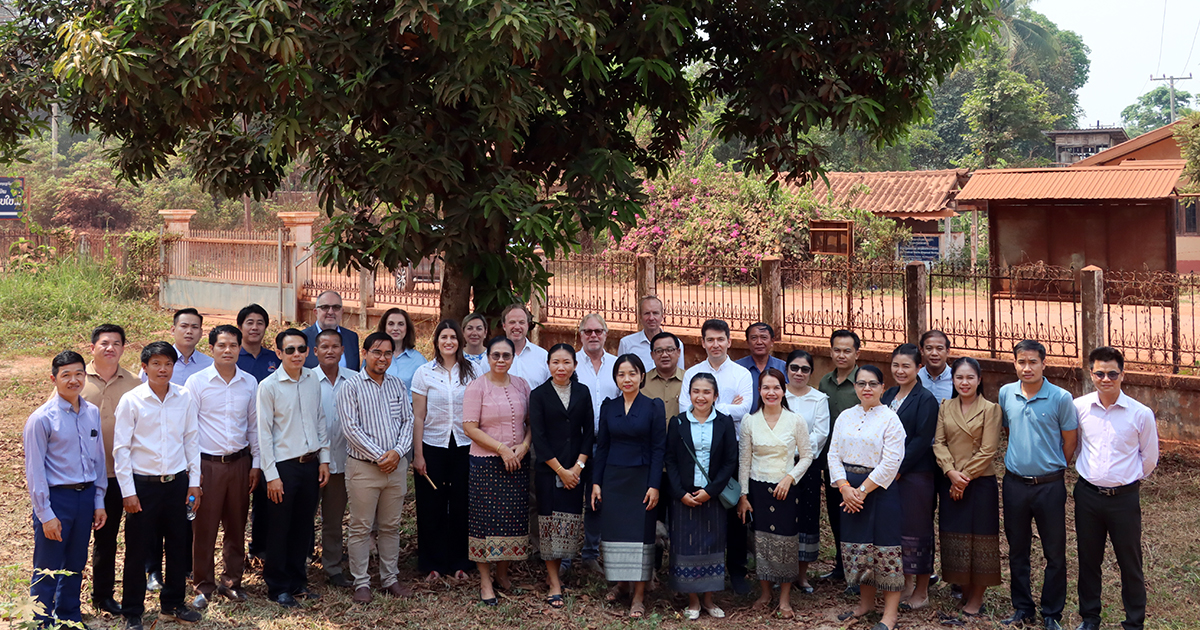The second physical meeting for the Capacity Building in Higher Education project, “INTEGRAL: Intelligent Geotechnologies for Resilient Agricultural Adaptation to Climate Change in Lao PDR,” co-funded by the European Union, took place at the Faculty of Agriculture of the National University of Laos, in Vientiane Capital, Lao PDR, on April 22-26, 2024.
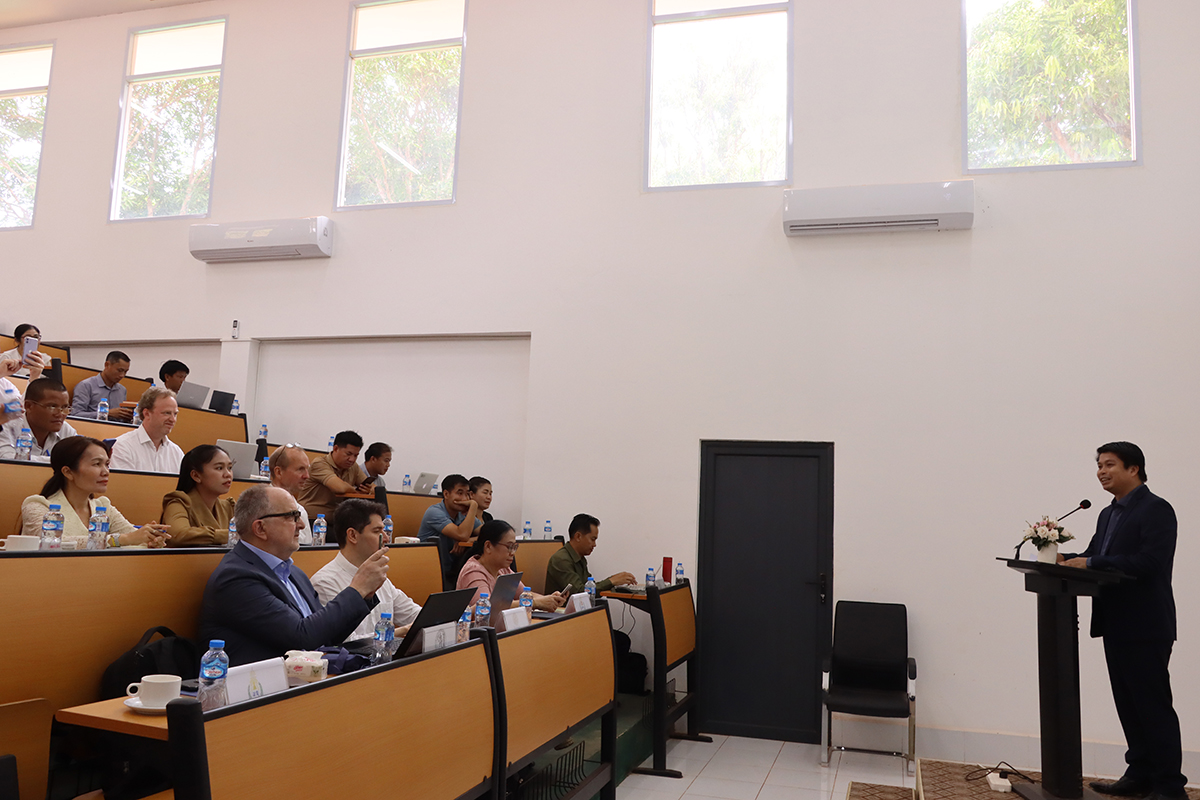
Welcome by the Faculty of Agriculture, National University of Laos
The event brought together 39 participants from all universities involved in the project: the National University of Athens (Greece), Lund University (Sweden), the National University of Laos, Souphanouvong University, Savannakhet University, and Champasack University (Lao PDR). Additional project team members joined online for specific meeting sessions.
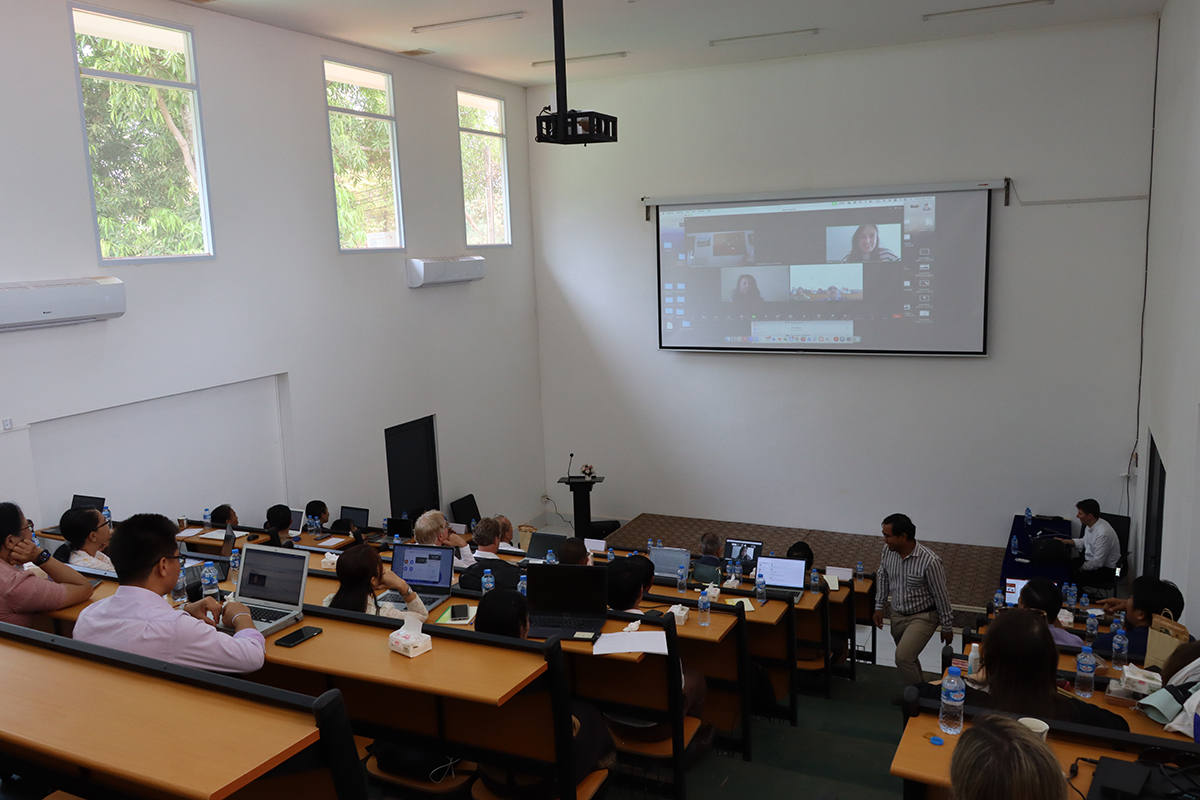
Online participants joining the meeting
The meeting marked a significant step forward as the project approaches its interim phase. The primary focus was on building the training capacity of staff at higher education institutions in Lao PDR, in preparation for the implementation of the four innovative courses on the application of intelligent geotechnologies for climate-resilient agriculture which are being developed by the project.
Additionally, participants reviewed project progress in several key areas:
- Project management
- Equipping geotechnology laboratories in Lao PDR higher education institutions
- Setting up e-learning systems
- Developing course materials for the new courses
- Preparing for accreditation and implementation of the new courses
- Project communication and dissemination
- Planning future activities.
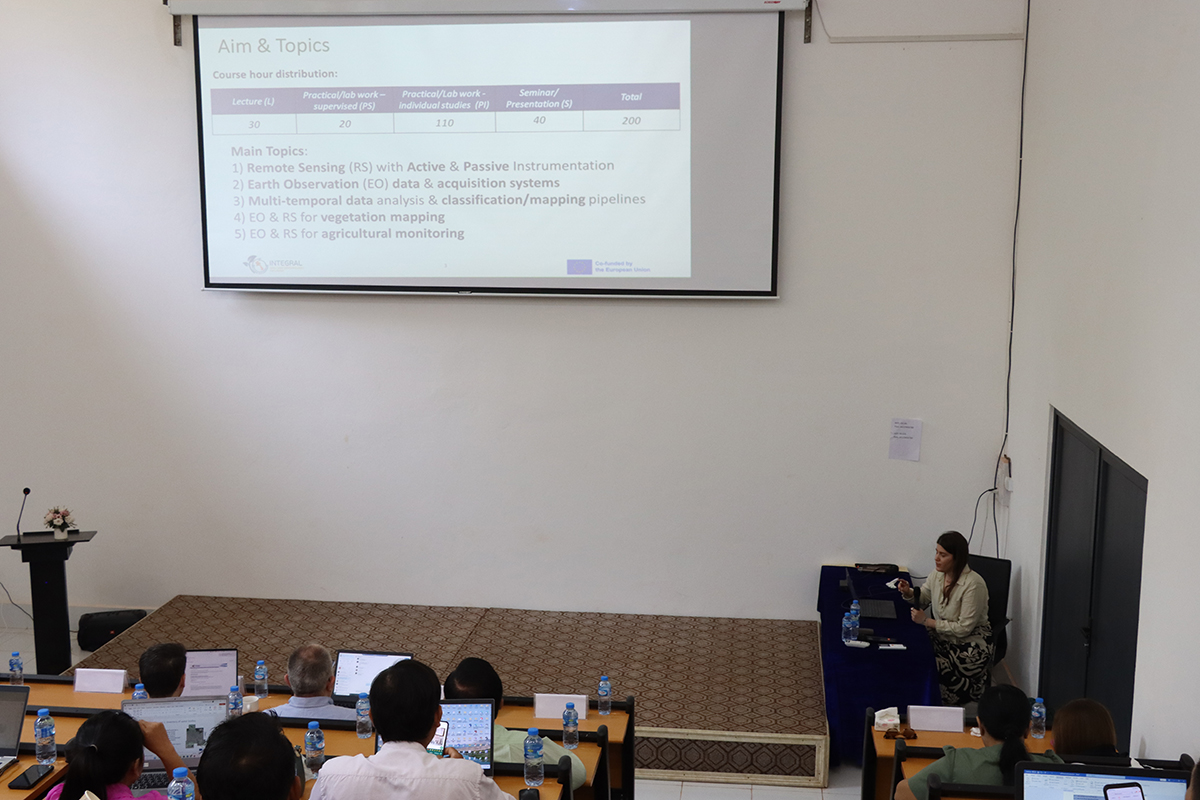
Training on teaching course 3: Earth Observation and Monitoring of the Agricultural Landscape
Building Training Capacity
The INTEGRAL project aims to enhance the capacity of higher education institutions in Lao PDR in the field of resilient agriculture, toward the country's effective adaptation to climate change. This will be achieved by:
- Exploiting the toolkit of geospatial technologies
- Introducing and practicing hybrid teaching techniques and promoting project-, problem-, and investigation-based learning.
Training provided during the meeting addressed the above goals, benefiting from knowledge exchange between project partners and team members from diverse backgrounds. Key aspects covered included:
- Using e-learning systems
- Teaching Course 1: Climate-Resilient Agriculture, Food Security, and Adaptation – The Role of Intelligent Geotechnologies (7.5 ECTS)
- Teaching Course 2: Geospatial Data Modelling and Visualization for Climate-Resilient Agriculture (7.5 ECTS)
- Teaching Course 3: Earth Observation and Monitoring of the Agricultural Landscape
- Crop type mapping
- Multispectral drone theory and practical application for mapping
- Image analysis and interpretation using GIS for agricultural monitoring
- Teaching Course 4: Intelligent Spatial Data Infrastructures for Resilient Agriculture and Adaptation (7.5 ECTS)
- Active Learning Teaching
- The basics of the Bologna process
- Distance learning.
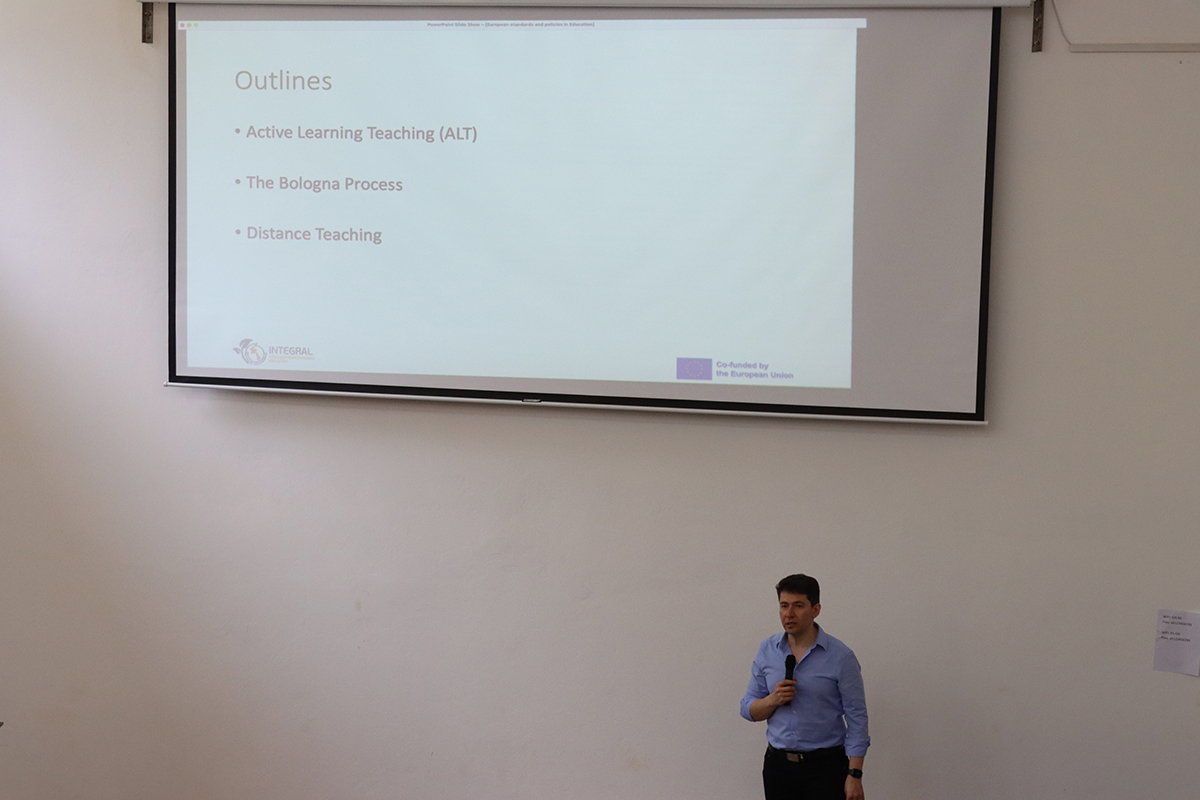
Session on alignment with the European educational system
Looking Ahead
Training activities will continue to prepare the staff of higher education institutions in Lao PDR for the implementation of the new courses, ensuring that they are well-equipped to teach intelligent geotechnologies and apply innovative teaching and learning methodologies toward climate-resilient agriculture in Lao PDR.
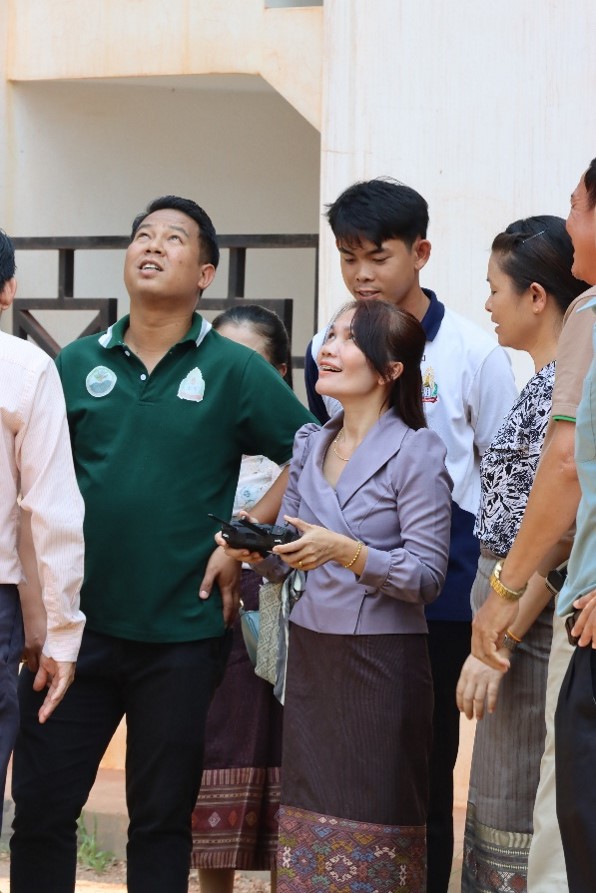
Drone flying practice
